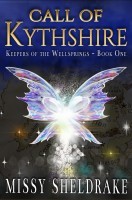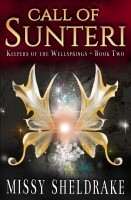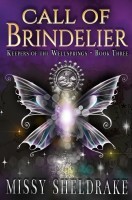Owen R. O'Neill's Blog, page 7
September 29, 2016
The Taking of Romeo Nine — Free This Weekend!
September 28, 2016
More Thoughts on Selling a Book: Fiction vs. Nonfiction
Ever since the indie author revolution got going, there has been a growing market: the indie authors themselves, who are looking for support of several kinds: editing, covers, and marketing, chief among them. Marketing encompasses both actual services and advice on how to do it. Given that many (probably most) new indie authors don’t have a great deal of money to spend on marketing services, marketing advice is of great concern to many of us. In the 3+ years since we published our first book, I’ve been exposed a good deal and—knowing nothing about marketing heretofore, but being an analyst—I wondered where it came from.
Where it came from was thrown into high relief some time ago in an article I happened upon. I didn’t save the link so I’m afraid I can’t share it, but it was called something like “The marketing secrets of Big 5 publishers”. It was an interview with a guy (an “expert”) who had been a marketing professional for said publishers.
This expert said everything I’d heard before (and if you’ve done any research on this, you almost certainly have, too) and a little or nothing I hadn’t (which is one reason I didn’t save the link). But one thing stood out to me. At the end of this long interview, the interviewer asked the expert if he’d had success with marketing fiction.
The expert said: yes. That was basically it. No elaboration, no real discussion of how or even how often, or what his success rate was. Pretty much just yes, and the interview ended.
What the expert had spent the entire interview talking about was marketing nonfiction. Three points I recall him emphasizing were: building a platform, social media, and starting early. That makes perfect sense. If I’m writing a book on how to sail around the world or the Second Defenestration of Prague, readers interesting in those topics are going to want be sure I know what I’m talking about.
Therefore, I should blog about sailing or why people get chucked out of windows; reach out to community groups and give talks and lectures on my subject. I should be active on social media where sailing enthusiasts or history buffs congregate. I should have a “resume” of some sort showing my relevant accomplishments. And I should do all of this well in advance so by the time my books comes out, I’ve established myself as a credible authority and useful resource on the topic.
It will also help if I can garner the endorsement of noted authorities, but this is not something I can control, and I have to do all of the foregoing before said authorities will give me that endorsement (or resort to underhanded tactics). If I do all of this well enough (meaning I’m recognized as a credible authority and useful resource) the chances my book will sell in appreciable numbers is greatly enhanced.
But what does any of this to do with fiction? Short answer: generally not much, if anything.
Nonfiction sells a product: information. That product can be evaluated in ways that are largely objective: is it accurate? Is it relevant? Is it sufficiently comprehensible? Yes, subjective factors intrude, but the ocean does not care what your opinions about sailing are. The ocean will operate on you according to physics, no matter how you feel or what you think.
Fiction, however, sells an experience, and that experience is both wholly subjective and unique to every individual. Because fiction is a wholly subjective, no one really knows what fiction will sell, when or how well. The only way to tell if our fiction will sell is to write it, and put it out there. The only real way to build credibility as a fiction author is to be one.
Now, is it really that simple? In practice, of course not. Nonfiction can be difficult to find a market for. (Would you buy a book on the Second Defenestration of Prague?) Fiction can have a “nonfiction” angle by being tied to a place or an event of local or regional interest. Lines blur and markets respond differently. But the central distinction remains.
The bottom line is that bulk of the marketing advice out there is based on selling non-fiction, because that is a problem with criteria that can, to some extent, be evaluated.
In contrast, selling fiction is largely a matter of “fortune” which is unpredictable. But the more we write, the better the chances of being fortunate. So, in that sense, it is “that simple”.
September 25, 2016
Thoughts on Selling a Book
I’m coming out of self-inflicted purgatory of trying to finish our latest novel to offer some thoughts on selling a book, as that will be of renewed concern to us in the not too distant future.
Selling books is an issue that exercises the minds of many authors, especially new ones. I titled this post “Thoughts on Selling a Book” to highlight the fact that we, as authors, are really not trying to sell books. We are trying to sell a specific book or a small number of books—ours— not books in general. This is crucial difference. To illustrate that difference, here are two articles, both posted by BookBub, who arguably knows a good deal about selling books:
98 Book Marketing Ideas That Can Help Authors Increase Sales:
https://insights.bookbub.com/book-mar...
Tips on Optimizing Your Submission for a BookBub Featured Deal:
https://insights.bookbub.com/tips-on-...
These articles have some value in their own right, but the point I wish to make it that the first applies to selling a book. The second applies to selling books in general. The key distinction is that the first article lists 98 ideas—a large number—while the second is much shorter and pithier.
The conclusion I draw from this is that there are a many things that might help sell a book. Most won’t, however, and an exhaustive experiment to test which do and which don’t is beyond the practical capability of us independent authors (and pretty much anyone else—more on that later). The bottom line here is that no one really knows what will sell a book.
What will help sell books in general is a different question. BookBub, whose sole job is to sell books (in general), has a something of handle on the things help and the things that hinder book sales and they filter submissions accordingly.
But bottom line here, as I see it, is that obeying these general principles will help give a book a better chance of selling, but that certainly does not mean it will sell. And the “better chance” cannot be readily quantified (if at all).
So where does that leave us indie authors, trying to sell our book[s]? Are we condemned to trying one scheme after another, at great expense of time and emotional energy, to discover which might have some positive impact on sales (if any do)?
Or is there another way?
Personally, I think there is, but it comes at a cost and my observation is that many are not willing to pay it—at least not at first. It goes back to the question: how do publishers sell books?
Stripped of the frills, publishers sell books by applying the some of the principles laid out in the article above and then simply throwing books into the market. These days (especially for genre fiction) whatever “marketing support” a book initially gets often falls on the shoulders of the author, just as it would if the author published themselves. This is significant, because it shows what the publisher thinks of these efforts: little or nothing.
A few books gain some traction within the time period the publisher is willing to allot to them. These few then get some support for the publisher. The rest get dropped. This is simple economics, and reflects the fact that no one knows a priori which books will sell or (really) why.
It may seem counterintuitive, but we indie authors can do exactly the same thing. When we publish our book on Amazon (along with whatever other outlets we choose), Amazon puts that book in front a vast number of potential readers; orders of magnitude greater than we, as indie authors, can possibly reach, especially if we are new.
Our book shows some life or not. If it shows some life, pursuing some marketing options probably has value. If it doesn’t show life, our marketing efforts are almost certainly not going to bear much fruit. And this is where the cost starts to come in: as rule, if a book doesn’t sell well on Amazon, it’s probably not going to sell especially well anywhere else.
In that case, what do we do? I can’t speak for others, but what I’d do is leave that book up there and write another book. Maybe it will gain traction and maybe it won’t, but I’d keep writing books until I saw some signs of life and then, I’d start applying some marketing resources to it, content that now I have a backlog for new readers. The cost of this is patience—years worth, probably.
Alternatively, I’d adjust my expectations for sales and redefine what success mean to me (if I’d defined it in terms of sales) to write for fun and for whoever enjoys what I write, even if that’s just a handful of people.
The cost is giving up the dream of being a commercially successful author. But I think the rewards can be priceless.
July 2, 2016
(Re)introducing Minerva Lewis
June 30, 2016
Massive SIA Sales Event This Weekend!
I break my long radio silence to announce that over this long weekend, starting July 1 and continuing through the 4th, the wonderful folks at Support Indie Authors are holding a special Sales Event. Fifty authors will be offering their ebooks for free or at a steep discount. There are almost 100 titles in all genres, so you will find something to suit every taste.
Check out the offerings here: http://events.supportindieauthors.com. Pick up some new reading for yourself and to share with family and friends.
Wishing everyone the best for 4th!
Owen
Massive Sales Event This Weekend!
June 16, 2016
We have a Date!
June 10, 2016
Presenting Missy Sheldrake, author of The Keepers of the Wellsprings Series
Presenting Missy Sheldrake, author of The Keepers of the Wellsprings Series
Today I’m happy to take break for hectoring people about reviews and anything else, and present to you Missy Sheldrake, author of the The Keepers of the Wellsprings Series. She is a gifted fantasy writer who’s work I think will appeal to fans of the genre. Before I turn this blog post over to her, do note that Call of Kythshire is free June 10-12th, and Call of Sunteri is on sale for $0.99 on the same dates. Now, without further ado, here’s Missy!
~ ~ ~
I’m excited to announce that the third book in the Keepers of the Wellsprings series, Call of Brindelier, is now available on Amazon! If you haven’t read the previous books yet, read on for a super-quick crash course.
When I started writing this series, I really wanted to tell a story that was rich with fantasy, but not overly dark or mired with war and violence. I wanted to show the light side of fantasy: the cheerful, magical, uplifting side which I always drink up whenever it emerges in a story, and which always seems to be so fleeting in fantasy tales. I wanted to tell a story that would capture the hearts of young and old alike. Don’t get me wrong, my books aren’t void of conflict and evil. They tell of uncomfortable moments. There is violence and wickedness, but it’s those moments in my stories which are the fleeting ones. In the pages of my books, you will find fairies, Mages, Paladins, Elves, Dreamwalkers, Princes and Princesses, and even dragons. You’ll travel through a world rich with magic and wonder.
In Call of Kythshire, you’ll learn all about Cerion, a seaside kingdom which has celebrated peace for over a century. You’ll meet His Majesty’s Elite, a guild that is the right hand adventuring team of King Tirnon Plethore, and you’ll join Azi Hammerfel, a young squire who has grown up within the guild’s halls, through disappointments and triumphs. By her side is Rian, her childhood friend, an Apprentice of the Mage Academy. You’ll meet Flit, a fairy from Kythshire, who is as tricky as any fairy you might imagine, but has a depth of character and a sense of purpose uncommon for a typical fairy. You’ll see her world unfold, and feel the evil threat of Sorcery that looms, waiting to destroy it. You’ll learn a little about the Wellsprings, but not too much, for their existence and workings are a well-protected secret. (Click here to read an excerpt from Call of Kythshire.)
In Call of Sunteri, you’ll meet the strong-willed slave boy, Tib, who makes his first appearance as he escapes from the grips of Sorcery in the desert continent of Sunteri. He has help crossing the vast oceans to reach Cerion, but he doesn’t realize it at first. A mysterious being speaks to his mind, controlling his thoughts and making suggestions to ensure his own survival. In the meantime, Azi has been given the task of escorting the Prince of Cerion and his wife-with-child to the lakeside Kordelya Castle as the prince faces suspicion and ridicule after the events of Call of Kythshire. But a darker force emerges from the Dreaming, whose wicked intent is to use any means necessary to escape its prison and claim the magic of the Wellsprings for his own. In this book, you’ll see the devastating effects of the overuse of magic, and what it does to the Wellsprings and the creatures who thrive around them. (Click here to read an excerpt from Call of Sunteri.)
In Call of Brindelier, a dark force looms, more powerful and destructive than any threat Azi and her guild have yet faced. You’ll follow Celli, a scrappy street fighter, as she is enticed into the grips of a powerful Sorcerer. You’ll watch Tib come into his own as he sneaks through the streets of Cerion, uncovering the darkness while also working on a mysterious project. You’ll follow Azi on a quest set by Princess Margary to find proof of Brindelier, a city in the clouds which is the key to all of the Wellsprings in the Known Lands. But Margy is not the only one interested in Brindelier. A dark force has been gathering, poised to claim it for their own. Control over the Wellsprings hangs in the balance. (Click here to read an excerpt from Call of Brindelier.)
Thank you for reading!
Missy Sheldrake
Learn more about Missy through these links:
Website: www.missysheldrake.com
Blog: http://missyflits.wordpress.com
Amazon Author Page: http://www.amazon.com/Missy-Sheldrake/e/B018CW7GTU/






